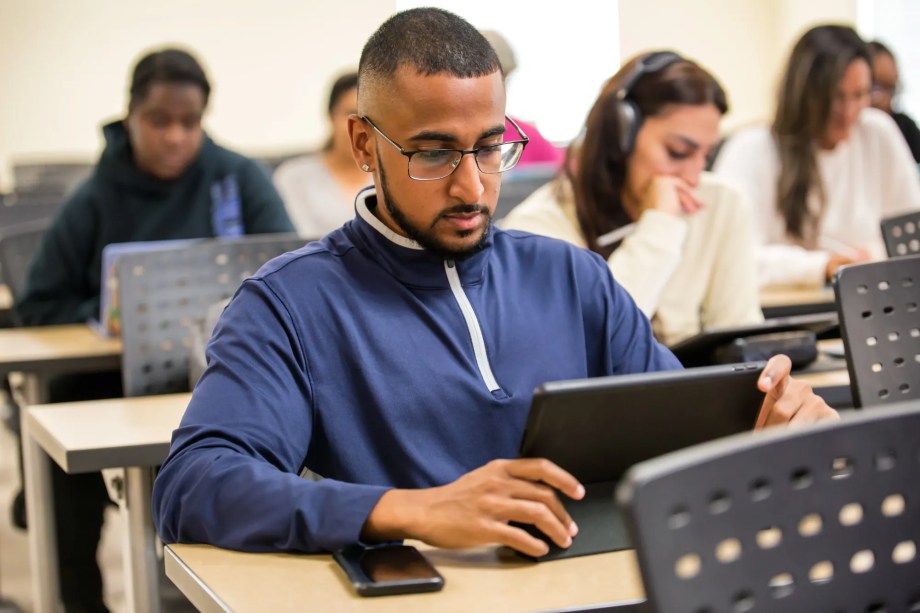
Top 10 Free Resources for Medical Students
Discover free academic resources for medical students in this guide.
Starting medical school can be an exciting and overwhelming time. On your path to becoming an MD, there are so many lectures, tutorials and clinical rotations to keep up with that it can be hard to know how best to consolidate your learning and keep on top of your studies.
The good news is you’re not alone. Almost every medical student will feel this way and there are plenty of great free medical resources for students available online. But with so many out there, how do you know which ones are best to use?
That’s where we can help! We’ve set out our top 10 free medical resources for students in this handy guide so you can make the most of your study time, consolidate learning in a fun and interactive way, and feel ready to take on your exams. Here are our top picks:
1. MSD Manual
With 3D anatomy models, case studies, quizzes and all the latest medical news, the MSD Manual is a fully comprehensive online medical resource for students. Beginning its life as a small reference book for physicians in 1899, it has evolved over the last 125+ years into one of the most widely used, trusted and best online resources for medical students. The free videos, photos and animations are definitely worth a look as they help bring medical theory to life.
2. Anki
Highlighted by many students as a highly effective way to learn, Anki is one of the best study tools for medical students out there. It can take a little practice to get the most out of it, but the clever use of active recall and spaced repetition is known to be one of the most efficient and effective ways to study for med students. Use pre-made flashcard decks that cover different medical specialties or make your own deck to help you ace that exam.
3. Amboss
Quizzes are a great way to sharpen your medical know-how and keep your knowledge up to date. Amboss is one of the best websites for medical students and practicing professionals alike, offering an extensive bank of multiple-choice questions. The interlinked content and clever image overlay mean you can brush up on definitions and practice diagnoses using charts and X-rays while you quiz. The app can also link with your Anki account, so you can get additional Amboss pop-up explanations alongside your Anki flashcard decks.
Get a 5-day free trial and sign up for a relatively inexpensive monthly or yearly subscription if you like it.
4. Healthline
As a medical student, you’ll need to access information from lots of different medical journals. Healthline saves you time and hassle by collating articles from all of the top medical journals into one convenient place. Covering a huge range of topics from Alzheimer’s to breast cancer and from depression to sexually transmitted diseases, it’s a must for any medical student looking to maximize their study time and avoid sifting through lots of different websites.
5. Acland Anatomy
Excelling in anatomy is essential for any medical student. This series of amazing three-dimensional anatomy videos uses human cadaver specimens to help you brush up ahead of your anatomy exams. Thanks to expert dissection insights covering the full scope of the human body, you’ll be an anatomy expert in no time.
You can sign up for a free 48-hour trial and extend to a full subscription later if you want continued access to the videos.
6. OnlineMedEd
Discover free resources categorized into different sections, including clinical medicine, basic sciences and even preparing for your medical residency. Created by medical professionals who sought to improve upon the study tools they received in school, this medical resource is a forward-thinking hub of knowledge.
7. Radiopaedia
Need some help or extra practice interpreting medical imaging? Radiopaedia is an open-edit resource for all things radiology. With around 50,000 example medical cases and expert reports, it’s an extensive online medical resource that can really help improve your radiology knowledge. There are also some fun quizzes you can do to test how much you’ve learned and compare your diagnoses and understanding against case findings. Check out this valuable medical education resource today!
8. Osmosis
With more than 100 medical and nursing expert content creators, the Osmosis platform is a trusted health education platform for students and practicing physicians. This online medical resource condenses 1-hour lectures into digestible 10-minute videos. Coupled with study notes and self-assessment questions, it provides a comprehensive learning experience and is one of the best apps for medical students out there.
Get a 7-day free trial with 6-month, annual and two-year subscriptions available if it’s a medical resource you find helpful.
9. American Medical Association
From up-to-date medical articles and research to podcasts, fellowship opportunities and leadership training, the American Medical Association (AMA) offers an incredible free medical resource for medical students and professionals who want to continue their learning journey. The AMA Ed Hub is a particularly useful tool for helping you find and track online courses and accredited programs in one place. It offers courses in various formats so you can read, watch, listen or interact with course content the way you need to help you learn best.
10. UpToDate
UpToDate is jam-packed with medical knowledge that can help answer a student’s essential clinical questions. As its name implies, all the information in the app is updated regularly, and is evidence-based and accurate, enabling students to use it as both a quick reference and an efficient information portal covering a wide range of topics. The free app features well-cited articles that provide a great starting point for any student’s inquiry, while the paid subscription version offers even more features.
Other resources and help for medical students
Our top 10 free medical education resources are great for helping you maximize your study time and keeping your medical knowledge up to date with fun, educational and interactive tools. But studying and working full-time can be a lot, so as well as online medical resources, make sure you look after your well-being and seek out further help and support when you need it.
If you’re feeling overwhelmed or in need of some extra advice, ask classmates, friends, tutors and professors who can provide additional support, study tips, help with time management or other guidance. You should also check out student services that benefit your academic and personal experience in medical school.
Remember, campus communities want to see you succeed and can either help directly or point you towards further support. For more tips, read our handy guide on how to succeed at medical school.
Conclusion
If you’re an aspiring physician who is considering when and where to attend medical school, be sure to learn more about Medical University of the Americas (MUA)!
Our internationally accredited MD program helps future medical doctors develop the knowledge and expertise they need to develop successful careers as practitioners in the U.S. and Canada, and our pre-med programs help future medical students develop the educational foundation required to succeed in the MD program.
Explore our website for more info or watch some of our testimonial videos for firsthand insights into the MUA student experience, including this one from an MD student:
When you’re ready, start your application or contact us for help getting started!
FAQs About Medical Student Resources
There are many medical resources available, from free apps to free websites for medical students, offering access to medical journals and research papers. Medical school libraries also provide various medical education resources, including free books for medical students and online medical resources.
Some of the best online resources for medical students provide access to free medical textbooks. Medical learning websites like Healthline and OnlineMedEd offer a pool of information and access to a wide range of medical resources and textbooks.
Free anatomy tools are valuable for medical students. Online medical resources like Acland Anatomy cover the full scope of the human body through a series of three-dimensional anatomy videos. This is one of the best medical resources for students looking to brush up on their anatomy knowledge before exams.



